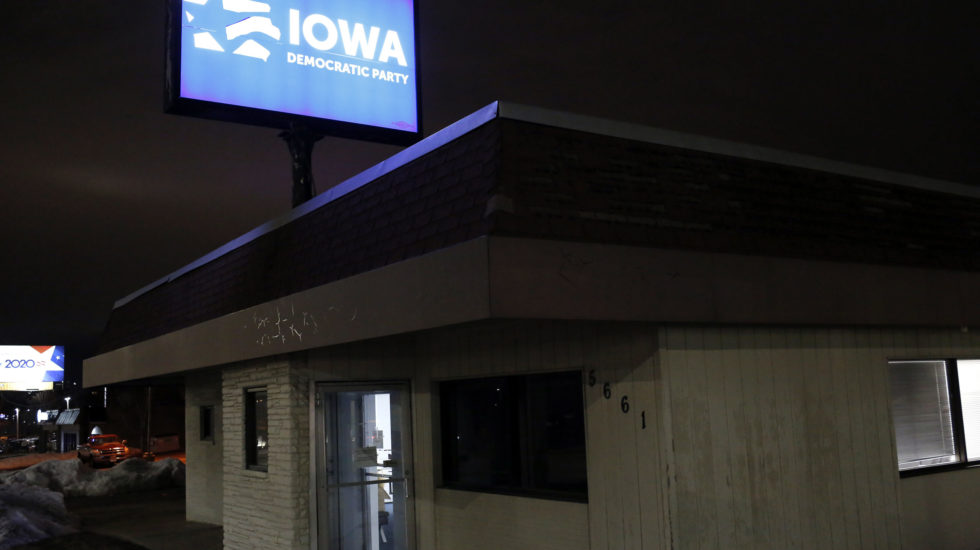Turns out, the Iowa caucuses were good for Pete Buttigieg and Bernie Sanders; partial results released Tuesday afternoon showed them in a virtual tie, 1-2 atop the Democratic field.
It remained unclear in which order they might wind up.
But if there was a shocker, it was Joe Biden, who appears to have finished a distant fourth among the top contenders, well behind Elizabeth Warren.
Shortly after 5 p.m. CST, the New York Times reported Buttigieg with a thin lead over Sanders in delegates won, based on 62% of Iowa precincts reporting. The Washington Post, counting raw vote totals, put Sanders slightly in the lead. Both newspapers had Warren in third place with Biden trailing.
It was a long, frustrating night for caucus-goers and Democratic Party officials in Iowa — a long night followed by a long, frustrating day, more than 20 hours of waiting in all, for the first real results to be released.
Years of planning by the Democratic Party in Iowa went for naught when the election counting apparatus melted down. It’s being blamed on an app that was supplied to precinct workers around the state to report voting results. The simple explanation is the app didn’t work. From Politico’s Playbook:
“Democratic party officials in Iowa worked furiously Tuesday to deliver the delayed results of their first-in-the-nation caucus, as frustrated presidential candidates claimed momentum and plowed ahead in their quest for the White House.
“Technology problems and reporting ‘inconsistencies’ kept Iowa Democratic Party officials from releasing results from Monday’s caucus, the much-hyped kickoff to the 2020 primary. It was an embarrassing twist after months of promoting the contest as a chance for Democrats to find some clarity in a jumbled field with no clear front-runner.
A spokeswoman for the Iowa Democratic Party tried to ease concerns about the accuracy of the vote-count.
“This is simply a reporting issue, the app did not go down and this is not a hack or an intrusion,” said Mandy McClure. “The underlying data and paper trail is sound and will simply take time to further report the results.”
At one point “a source affiliated with one campaign” told the Washington Post that “It’s just a total mess.”
Some media observers suggested the debacle might put an end to the caucuses, or at least a dramatically altered way to run them.
Iowa’s caucuses are have always been a peculiar institution.
For Democrats, they’re only the first step in a complex statewide process that will eventually yield just 41 delegates to join more than 1,900 others at the national nominating convention in July.
But because the caucuses represented the first actual votes cast in each presidential election year, they gained an outsized influence; call it the very American “we’re number-one!” factor.
Billionaire Michael Bloomberg, who didn’t campaign in Iowa, remains a wild card, spending heavily on advertising for Super Tuesday, Mar. 3, when 15 states and territories, including California, Texas and North Carolina, hold Democratic primaries or caucuses.
A CNN poll found that while Iowa caucus-goers considered health care and climate change among the most important issues facing the nation, more than 60% declared that beating Donald Trump in November is their top priority.
The Iowa Republican caucuses handed Trump an overwhelming victory over two little-known opponents. Trump must have found it a satisfying, even amusing, day, and his campaign gloated that it was “the sloppiest train wreck in history” for Democrats.



